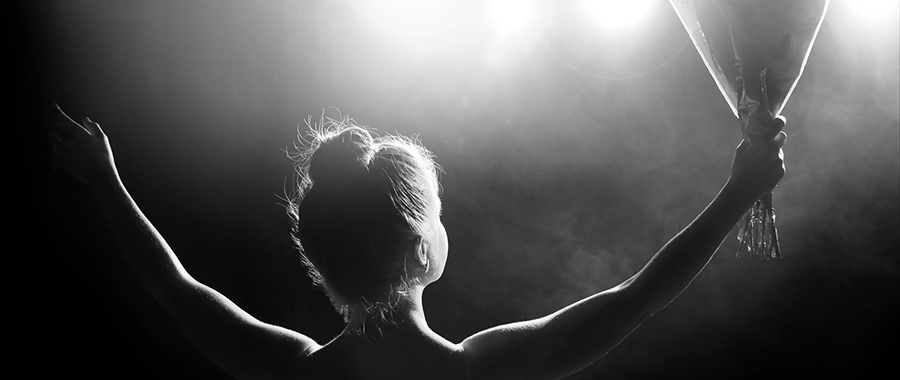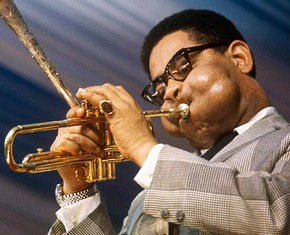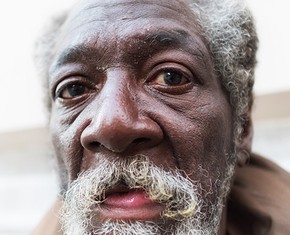The views expressed in our content reflect individual perspectives and do not represent the authoritative views of the Baha'i Faith.
When the Baha’i Faith reached the Western world, it inspired artists, musicians, writers and playwrights, and began to create a whole host of new artistic interpretations.
The first two stage plays about the new revelation— Isabella Grinevskaya’s Bab and Laura Clifford Barney’s God’s Heroes—touched the hearts of many, including literary figures like Leo Tolstoy.
But the third play inspired by the story of the Bab and Baha’u’llah and their followers was based on an outline authored in 1912 by Abdu’l-Baha himself. He gave the outline to Mrs. Gabrielle Enthoven (1868-1950), who Abdu’l-Baha called Hamsiyah (meaning “neighbor”).
Enthoven—a recognized, well-known and now legendary figure within London’s theatrical society—had friendships with many members of England’s theatrical elite at the time, including Oscar Wilde, John Gielgud, Peggy Ashcroft, Marda Vann, Edith Craig and Nöel Coward. During the 1920s, for example, Enthoven stayed in New York with Cöward and Cecile Sartoris, where the two women translated The Honeysuckle, a play by the Italian writer Gabrielle D’Annunzio.
On January 17, 1913, about a month after his return to England from North America and shortly before his departure for France, Mrs. Enthoven invited Abdu’l-Baha to her home. During that visit, according to Lady Blomfield, he had a conversation with his hostess, which she summarized as follows: “What is your great interest in life?” Abdu’l-Baha asked. Gabrielle Enthoven replied: “The Drama.”
Abdu’l-Baha said: “I will give you a play. It shall be called the Drama of the Kingdom.” Lady Blomfield rather matter of factly stated, “The Master then gave a plan, from which a play has been written by my daughter, Mary.” – Lady Blomfield, The Chosen Highway, p. 155.
Now, Gabrielle Enthoven was not only a theater lover—she was an accomplished playwright herself. Her Wikipedia entry says:
Enthoven was a keen playwright and had her first play, Montmartre, produced at the Alhambra Theatre, London in 1912 as part of a revue called Kill That Fly! The Observer gave a favourable review of the sketch, writing: ‘the little wordless thrill, “Montmartre”, by Gabrielle Enthoven, is the most thrilling thing of its kind we have seen’. She was the president and founding member, alongside her close friends Edith Craig and Christopher St. John, of the Pioneer Players, a London-based theatre society founded in 1911. The company was formed from members of the Actresses’ Franchise League. The Pioneer Players engaged heavily with socio-political issues of the era. The society ’acknowledged an interest in women’s suffrage and in any other current movement of interest’. In 1916, the company produced the play Ellen Young, written by Enthoven and Edmund Goulding. It was performed at the Savoy Theatre on 2 April 1916.
There is no record, however, of Gabrielle having written a play based on the outline given to her by Abdu’l-Baha.
On the other hand, such a play was indeed authored by the actress and playwright Mary Hall, Lady Blomfield’s daughter. It was published with the title “The Drama of the Kingdom” in 1933 by Weardale Press in London, with a notice written by its author, whose married name was Mrs. Basil Hall, and who was called “Parvine” (which refers to the seven-star constellation the Pleiades) by Abdu’l-Baha:
The Drama of the Kingdom has been approved by the Guardian of the [Baha’i] Cause, Shoghi Effendi, whom I desire to thank for the deep interest and inspiring suggestions given to this work. I also thank my mother, Lady Blomfield, for her inspiration and help. My gratitude is further due to Mrs. Gabrielle Enthoven for her permission to use the Plan for the Drama, which was given to her by Abdul Baha Abbas. – Drama of the Kingdom
On the occasion of its publication, it was reported in The Baha’i World:
In the light of the statement made by Shoghi Effendi in a recent letter to an American believer, that in the future the Faith would be spread effectively by the mediums of creative art, the writing of a play entitled “The Drama of the Kingdom,” by Mrs. Basil Hall of London, and its publication in book form, appears to the believers a happy augury. – The Baha’i World, Volume 5, 1932-1934, p. 29.
While no production of the play is recorded in the year of its publication, in 1994 a staging based on Abdu’l-Baha’s outline and Mrs. Hall’s elaboration premiered in Perth, Australia entitled The Face of Glory: A Musical Rendezvous with the Soul.
















Comments
Sign in or create an account
Continue with Googleor